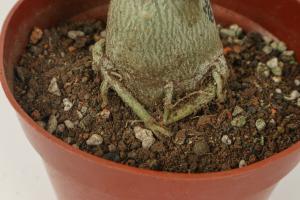What You Need to Know: Does Snake Plant Attract Bugs?
Are you thinking of adding a snake plant to your indoor or outdoor garden but are worried about the pests it may attract? While most plants are known to attract bugs, snake plants, also known as Sansevieria, are considered to be one of the few bug-resistant plants out there.
However, just like any other plant, they still require care and protection to keep them healthy and growing pest-free. In this article, we鈥檒l explore the snake plant鈥檚 bug-resistant properties and tips on how to care for them to keep them thriving.
The Science Behind the Snake Plant's Resistance
The snake plant is known for its air purifying properties, and one of the ways it achieves this is by releasing oxygen at night. This process is different from most other plants which release carbon dioxide at night, making the snake plant ideal for indoor spaces.
But did you know that the snake plant also has bug-resistant properties? It produces a toxin called saponin, which is toxic to insects and wards them off. This toxin is also present in other plants like aloe vera and horse chestnuts, which are also known to be bug-resistant.
How to Care for Your Snake Plant
If you want to keep your snake plant healthy and bug-free, here are some tips to follow:
1. Choose the Right Soil
Snake plants prefer well-draining soil that is slightly sandy. Avoid using heavy soils that retain water for too long, as this can lead to root rot which can attract bugs.
2. Water Sparingly
Overwatering is one of the most common problems that snake plant owners face. They do not require frequent watering, and it鈥檚 better to underwater than overwater. Always let the soil dry out completely before watering again.
3. Keep Them in Bright Light
Snake plants thrive in bright, indirect sunlight. They can also tolerate low light conditions, but the leaves may not grow as tall or robust.
4. Wipe Down the Leaves
Wiping down the leaves with a damp cloth helps remove any dust, grime or insects that may have clung to them. This also helps the leaves absorb more light, making them more efficient at photosynthesis.
Conclusion
So, does the snake plant attract bugs? Luckily, the answer is no. The saponin toxin that the plant produces acts as an insect repellent, making it less likely to attract bugs. However, it鈥檚 important to take care of the plant and keep it healthy to ensure it remains pest-free. Follow the tips outlined above to provide your snake plant with the best care possible.

 how many times do yo...
how many times do yo... how many planted tre...
how many planted tre... how many pine trees ...
how many pine trees ... how many pecan trees...
how many pecan trees... how many plants comp...
how many plants comp... how many plants can ...
how many plants can ... how many plants and ...
how many plants and ... how many pepper plan...
how many pepper plan...































